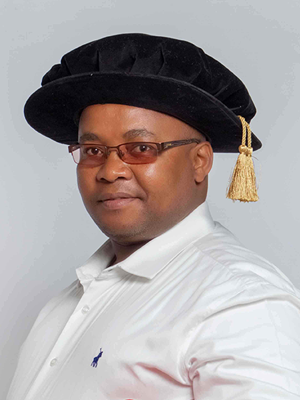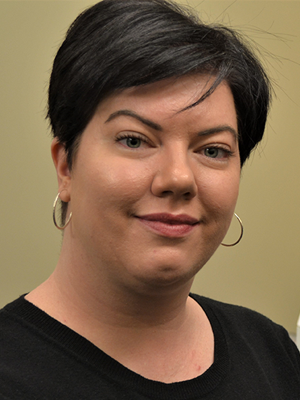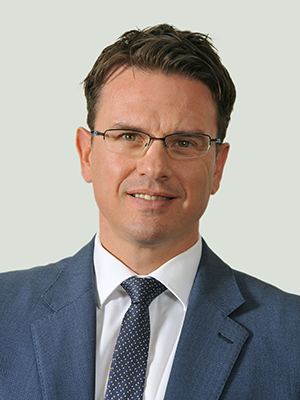
Prof Leepile Sehularo
Legalisation of marijuana: the debate continues (read more)
Legalisation of marijuana: the debate continues
By Prof Leepile Sehularo
This inaugural address provides an overview of the consequences of the legalisation of marijuana in South Africa. In terms of the Cannabis for Private Purposes Bill (2020), it is illegal for children to consume marijuana, and it is also illegal for adults to smoke or possess marijuana in a public place. It is worth noting that since the legalisation of marijuana in the country, the number of users of marijuana and admissions to mental healthcare institutions due to marijuana use disorder have increased dramatically. There is evidence that people who use marijuana are more likely to develop temporary psychosis and long-lasting mental disorders, including schizophrenia. Marijuana use has also been linked to social anxiety, depression and suicide.

Prof Chrisna Gouws
Cells: Basic building blocks or complex microcosms? (read more)
Cells: Basic building blocks or complex microcosms?
By Prof Chrisna Gouws
Cells are the basic building blocks of living organisms. Cells can be cultured in a controlled laboratory environment and used for a multitude of applications. However, cells are cultured in basic and unstructured organisations, usually on a flat plastic surface. Researchers have shown that the in vitro cell model microenvironment can change the behaviour and response of cells. New three-dimensional models allow cells to create an extracellular matrix, re-establish communication with other cells, and assemble themselves into more complex structures. These models better mimic the in vivo physiological and biochemical characteristics of cells and contribute to the higher physiological relevance of results.

Prof Pieter Kruger
Chasing success: applied performance psychology in elite sport and business (read more)
Chasing success: applied performance psychology in elite sport and business
By Prof Pieter Kruger
In the past decade, applied performance psychology has become increasingly more relevant and important in the elite sport and business world. This interdisciplinary field uses neuroscientific and psychological principles to enhance individual and team performance, as well as mental well-being, in high-pressure environments. The focus is on improving well-being, resilience, and good mental health, while focusing in parallel on enhancing performance – treating people as the most important factor in the process. In applied settings there are significant variables that need to be managed, while contending with the lack of time, high work volumes and multiple stakeholders all playing an important role in well-being and performance. This talk explores the most significant factors involved in optimising well-being and enhancing performance in a sustainable way in applied elite sport and business settings.

Prof Johanita Burger
Pharmacoepidemiology and drug utilisation research: paving the way for real-world evidence in AfricaNatural products as scaffolds and sources of therapeutics (read more)
Pharmacoepidemiology and drug utilisation research: paving the way for real-world evidence in AfricaNatural products as scaffolds and sources of therapeutics
By Prof Johanita Burger
In an era in which evidence-based decision-making is crucial for healthcare providers, policymakers and regulators, reliance on real-world evidence has emerged as a powerful tool to inform clinical practice, drug development and healthcare policy. At the heart of this paradigm shift lies disciplines such as pharmacoepidemiology and drug utilisation research that delve into the utilisation and effects of medicine and outcomes of treatment in real-world populations. By harnessing the data generated through routine healthcare delivery, these disciplines pave the way to real-world evidence by offering invaluable insights into healthcare utilisation, treatment outcomes, safety and comparative effectiveness, ultimately leading to improved patient care.

Prof Lesetja Legoabe
Natural products as scaffolds and sources of therapeutics (read more)
Natural products as scaffolds and sources of therapeutics
Prof Lesetja Legoabe
Natural products, including those of plant and marine origin, have been used as sources of remedies for centuries. Inspired by this, scientists explored these products to develop medications to help address unmet medical needs. In this regard, compounds associated with therapeutic activities have been isolated and identified from these sources, including some of a poisonous or toxic nature. Some of these compounds are used in clinical practice without chemical modification (for example, atropine), while some had to be modified (for example, in the development of captopril) to provide better medications. Following many years of research, the chemical classes of compounds from natural sources (including phytochemicals) are now well known and are currently extensively use as scaffolds in drug development programmes.

Prof Petra Bester
A transdisciplinary reflection on health for all in South Africa: Calling moral leaders to action (read more)
A transdisciplinary reflection on health for all in South Africa: Calling moral leaders to action
By Prof Petra Bester
This lecture delves into the intricate web of health challenges that South Africa grapples with. In 1978 the world had consensus about the “Health for all by the year 2000” declaration by the World Health Organization. But 45 years and 17 days later, health in South Africa is more unequal and unsustainable and impacted by a quadruple disease burden. Tackling complex health issues requires more than traditional training, technology and innovation. And simply adding more controls to the health system might not necessarily improve the quality. We find ourselves at a crossroads where health professionals are confronted with moral chaos within the health system. This lecture is a call to action – to embrace moral leadership and actively contribute to making a positive impact on South Africa’s health and health systems collectively towards a healthier and more equitable future for all!

Prof Siedine Coetzee
The nursing profession in South Africa: Our cup runneth over (read more)
The nursing profession in South Africa: Our cup runneth over
By Prof Siedine Coetzee
After studying various nurse outcomes over several years, it became clear that interaction with the patient, use of oneself and resources were the main factors that either favourably or negatively affected nurse outcomes. I therefore focused my research on the impact of resources, particularly the practice environment, on nurse outcomes. Global and national research we conducted in South Africa proved that the practice environment had the largest effect on nurse outcomes, and the latest research conducted within the SARChI unequivocally proved that of all aspects of the practice environment, leadership, management and support of nurses have the most impact on nurse outcomes.
